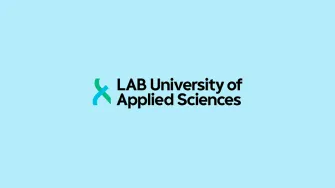Circular Design Training Program
Yhteiskunnalliset ja taloudelliset tarpeet ovat muuttuneet, ja olemme siirtymässä aikakauteen, jossa tuotteet ja palvelut suunnitellaan siten, että ne hyödyttävät kaikkia ja kunnioittavat planeettamme rajallisia resursseja sekä ympäristöä.
Muotoiluala kehittyy nopeasti, ja muotoilijat, erityisesti jo valmistuneet ja pitempään ammatissa toimineet, tarvitsevat jatkuvaa koulutusta ja osaamisen päivittämistä, jotta he voivat vastata muuttuviin vaatimuksiin. Samalla muotoilualan on kehitettävä omia työskentelytapojaan ja toimintamallejaan kestävämmiksi, ottaen huomioon kiertotalouden periaatteet. Suunnittelijoilla on keskeinen rooli muiden toimialojen tukemisessa EU:n asettamien päästövähennystavoitteiden saavuttamisessa, kestävien tuotteiden valmistamisessa sekä kiertotalouden liiketoimintamallien edistämisessä. Lisäksi he voivat tukea kuluttajia kestävämpiin valintoihin siirtymisessä. Tämä edellyttää konkreettisia toimenpiteitä, jotta voimme kouluttaa ja valmentaa riittävästi muotoilijoita, joilla on tarvittavat taidot vastata kasvavaan kysyntään ja siirtyä kohti kestävämpää tulevaisuutta.
Tämän projektin päätavoitteena on kehittää koulutussisältöä, joka vahvistaa muotoilijoiden kykyä ja valmiuksia soveltaa kiertotalouden periaatteita omassa työssään. Projekti on saanut rahoituksen Erasmus + ohjelmasta (KA210-ADU - Small-scale partnerships in adult education).
Projekti käynnistyi syyskuussa 2024 Tallinnassa, hanketta johtavan Estonian Design Centren toimitiloissa Tellsikiven alueella. LAB Muotoiluinstituutin ja Estonian Design Centren asiantuntijat kiteyttivät kick-offissa hankkeen toimenpiteitä ja suunnittelivat syksyn aikana toteutettavia työpajoja.
Muotoiluala kehittyy nopeasti, ja muotoilijat, erityisesti jo valmistuneet ja pitempään ammatissa toimineet, tarvitsevat jatkuvaa koulutusta ja osaamisen päivittämistä, jotta he voivat vastata muuttuviin vaatimuksiin. Samalla muotoilualan on kehitettävä omia työskentelytapojaan ja toimintamallejaan kestävämmiksi, ottaen huomioon kiertotalouden periaatteet. Suunnittelijoilla on keskeinen rooli muiden toimialojen tukemisessa EU:n asettamien päästövähennystavoitteiden saavuttamisessa, kestävien tuotteiden valmistamisessa sekä kiertotalouden liiketoimintamallien edistämisessä. Lisäksi he voivat tukea kuluttajia kestävämpiin valintoihin siirtymisessä. Tämä edellyttää konkreettisia toimenpiteitä, jotta voimme kouluttaa ja valmentaa riittävästi muotoilijoita, joilla on tarvittavat taidot vastata kasvavaan kysyntään ja siirtyä kohti kestävämpää tulevaisuutta.
Tämän projektin päätavoitteena on kehittää koulutussisältöä, joka vahvistaa muotoilijoiden kykyä ja valmiuksia soveltaa kiertotalouden periaatteita omassa työssään. Projekti on saanut rahoituksen Erasmus + ohjelmasta (KA210-ADU - Small-scale partnerships in adult education).
Projekti käynnistyi syyskuussa 2024 Tallinnassa, hanketta johtavan Estonian Design Centren toimitiloissa Tellsikiven alueella. LAB Muotoiluinstituutin ja Estonian Design Centren asiantuntijat kiteyttivät kick-offissa hankkeen toimenpiteitä ja suunnittelivat syksyn aikana toteutettavia työpajoja.
Toteutusaika
-
Projektin tila
Päättynyt
Toteutusalue
Kansainvälinen
Rahoitus
Erasmus+ 2021-2027

LABin rooli
Osatoteuttaja
Yksikkö
Muotoiluinstituutti
Painoala
Aineeton arvonluonti

